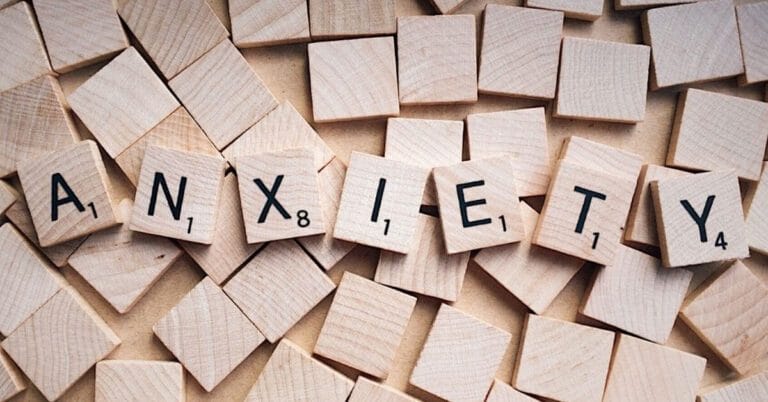Many people who work from home are balancing a heavy workload, daily chores to keep their workspace clean, and some are even managing homeschooling on top of it all.
As more of us are adapting to work remotely, let’s look at some of the most common signs of burnout from working from home, and how to cope with burnout at work.
If you want to stay happy and healthy working from home, then keep reading to learn more.
Working From Home Burnout in Remote Team
Burnout is likely to happen if you don’t find a balance between your work life and your home life. When working from home, people have a lot on their agenda. But if you are struggling with your work-life balance, and feel that you have little to no control over your work, you are at high risk of getting burnout working from home.
Stress and financial anxiety are at an all-time high, most remote workers fear they could be layoff if they don’t work hard enough. Thus many workers are not taking time off to recharge themselves which further increases the number of people getting burnout working from home.
- 69% of workers working from home experience symptoms of burnout.
- 59% of remote workers take less time off than if working in the office.
5 Signs of Burnout in Remote Workers Working From Home
Common signs of burnout working from home, include lack of motivation, exhaustion, irritable feelings, poor work performance, and even physical symptoms. People who are burnout may look fine from the outside, but when a person is always surrounded by work, working from home can easily lead to burnout.
Thus, if you work from home, it’s important that you know about the symptoms of work from home burnout. Understanding the burnout symptoms will allow you to know when to take a break and focus on yourself.
Prevention is always better than cure.
It is always easier to avoid burnout at work than to learn to cope after suffering from burnout at work. So, let’s take a closer look at some of the warning signs of burnout when you work from home.
1. Lack of Motivation at Work
One of the most obvious signs of burnout is when you don’t feel motivated.
Observe if there is any subtle change in how you feel about work. If previously, you were passionate about your work, but now it feels like a never-ending load of work, you could be burnt out.
When you are no longer motivated, it can affect how you work and how you feel about your job.
Lack of motivation at work can affect your personal life as well
A lack of motivation can also affect your home life. When you lack motivation in the things you do, your everyday things begin to feel like a burden.
When people lose their motivation, they fall behind with housework, work out less often, and don’t participate in the activities they love.
Not only does having low motivation can affect their work, but it also affects their personal life.
2. Always Feeling Exhausted and Tired
Exhaustion is another big sign of burnout. A lot of people are able to take on a heavier workload when they work from home.
Unlike working in an office, you are more likely to find yourself working beyond your office hours.
Working for long hours can have negative effects on your mental health, even if you don’t take on extra work, you can still get burnt out from not taking proper breaks.
Why do some remote workers often feel exhausted and tired?
When working in an office or workplace, there are set times when people take a break for a timeout from the job. This allows them to enjoy a coffee and some leisurely chit-chat with co-workers.
When working from home, people are more likely to eat and drink at their desks while working. If they take a break, it’s to tend to something around the house like washing dishes, preparing dinner, or folding laundry.
People need a timeout during their working day or else they will feel exhausted.
3. Feeling Irritable Easily
A lot of people will begin to get irritable or anxious feeling when they are burnt out. This can happen to someone when they are facing too much stress. If you’ve taken on a very heavy workload and find difficulties managing your work routine with your lifestyle, you may experience these feelings.
If you are facing a lot of pressure because you are worried about meeting deadlines, you may feel more irritable. This is probably a sign that you need to focus more on managing your schedule.
However, if you are feeling irritable easily and it is not that you have taken on more work, or trying to meet deadlines, this might be a sign of burnout.
Constantly feeling irritated is one of the most common signs of burnout and if this describes you, you may want to take some time for yourself to relax.
4. Poor Work Performance
An obvious sign of burnout is poor work performance. As a person advance in their career, their work performance should improve. This is because they have learned more about the industry they are in and have learned specific techniques and strategies to get ahead.
However, when there is a sudden dip in the quality of work they submit this is usually a sign of burnout.
The reason for poor work performance is that they are generally too mentally and physically tired to perform.
When a worker is experiencing burnout, the quality of their work seems like they are going in reverse with their career. Instead of seeing improvements, the performance they deliver has gone downhill.
5. Physical Symptoms
For some people who work from home, burnout can get to the point when they start having physical symptoms.
The most common physical sign that you might be experiencing burnout is having trouble sleeping.
Even though you feel exhausted, you may still have difficulties getting a full night’s sleep.
Some other physical symptoms of burnout include stomach aches and headaches. This can be brought on by stress, as too much stress can lead to burnout too.
How to Cope and Prevent Work From Home Burnout
If you feel burnout from working from home, it can greatly affect how you work, your career, your physical and mental well-being and even your personal life.
Remote work burnout can be avoided and prevented.
As you become familiar in recognizing burnout due to working too much, here are some tips to prevent work-related burnout, and ways you can use to cope with burnout while working from home.
1. Schedule Your Day-To-Day Routine
When working from home, it’s easy to get carried away and not take a time out. This is why it’s very important to make a day-to-day routine. This includes taking a look at how much work you have to do each day and planning it out. Make sure you schedule time in for breaks where you are not focused on work or housework.
Even a simple 15-minute coffee break where you step away from the desk can do a lot for improving your performance.
Having your day mapped out also helps you stick to your routine while achieving more balance. It also makes it easier for you to finish work before the deadline.
2. Take Time Off
A lot of people feel like they shouldn’t take time off unless they have a trip planned. However, annual time off is important for your mental health.
When you make time to relax and do things you enjoy without having to worry about work, it can help to prevent burnout. You are more likely to reach the point of burnout when you never have time away from your workload.
Why taking time off can help you prevent burnout at work?
Taking time off from work can help you avoid burnout because it gives you a chance to recharge your mental battery. Not only will you feel better, but you will also have a better work performance.
When you return to your regular workload you will feel refreshed and more focused.
3. Develop a Bedtime Routine
Your quality of sleep can affect your focus and performance at work. If you are well-rested, you are less likely to experience burnout while working at home.
If you find yourself having trouble falling asleep at night or wake up feeling tired, you may need to make some adjustments to your routine to ensure you sleep better. This could include:
- No caffeine within 7 hours of your bedtime
- Turn off TV screens and computer screens to eliminate light and noise in your room
- Turn your cellphone’s volume to silent before going to sleep
- Indulge in a relaxing activity before bed, such as stretching, reading, or even a hot bath
- Take steps to ensure your bedroom environment is comfortable for quality sleep (air quality, temperature, quality of pillows and mattress, etc.)
4. Make “You” Time a Priority
When you don’t focus on yourself, you are likely to experience burnout. It’s important to take time for self-care and the activities you enjoy participating in.
When you’re feeling burnt out, you’re less likely to make time for the things you have fun doing.
Making time for fun activities and spending time with people you love should always be a priority.
5. Ask For Help When You Need It
In some cases, you may need to re-evaluate your workload and address your concerns to your supervisor. This is a great way to find a realistic solution where you are still able to deliver top-quality work.
Average Salary in The United States by Age, Gender, and State [2022]Select Files
Always remember to ask for help if you need it.
Read Also:
- How to Become a Remote Developer: Your Complete Guide to a Digital Nomad Career
- How to Become a Blockchain Developer: Complete Guide to a Career in Blockchain Technology
- How to Become a SQL Developer: Complete Guide to a Career in Database Development
- How to Become a Freelance Travel Writer (Step-by-Step Guide)
- How to Become a Remote Freelance Technical Writer (Step Guide)
Join over 11,000+ achievers who are committed to achieving their career goals!






